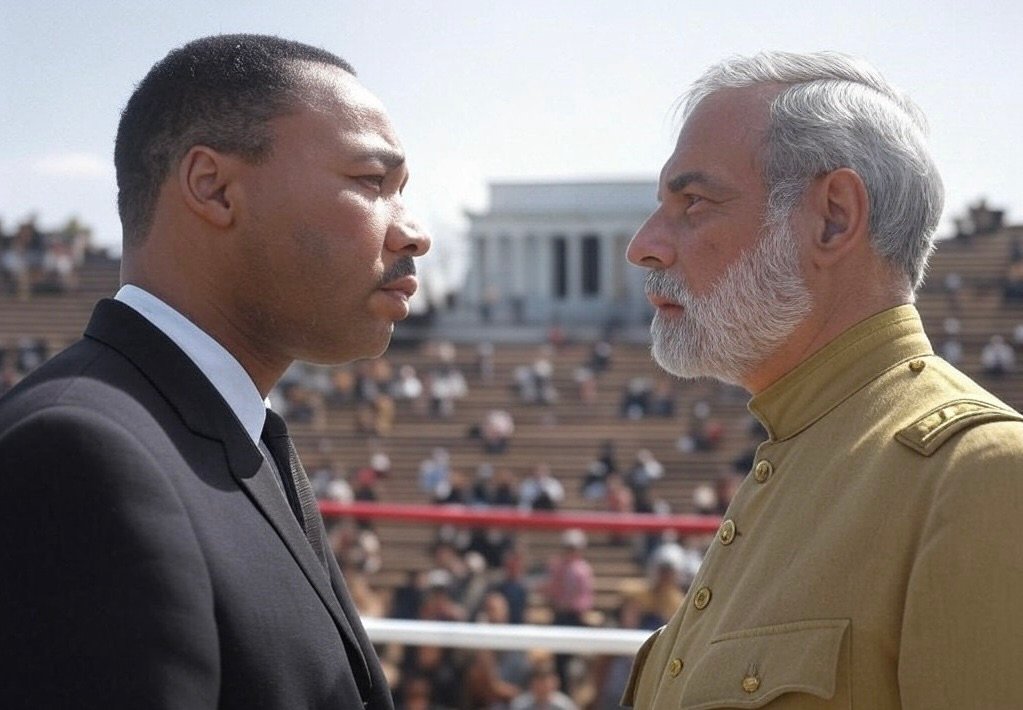As the rest of the country prepares to honor the legacy of Dr. Martin Luther King Jr., a champion of civil rights and equality, Alabama and Mississippi continue to stand apart—insisting on coupling King’s federal holiday with a celebration of Confederate General Robert E. Lee.
In 2025, the question remains: Why are these two men—one who fought for justice and unity, the other who led a war to preserve slavery—still honored side by side? And more importantly, why are efforts to separate them repeatedly met with resistance?
A Legacy of Division
Both Alabama and Mississippi have historically been reluctant to part with their Confederate past. In the early 1900s, white lawmakers across the South eagerly established holidays honoring Confederate figures like Lee, clinging to the so-called “Lost Cause” ideology that romanticized the Confederacy. Alabama created Lee’s holiday in 1901, followed by Mississippi in 1910.
Fast forward to the 1980s, when the U.S. finally recognized Martin Luther King Jr. with a national holiday. Rather than acknowledging his contributions with a day of its own, Alabama and Mississippi simply tacked King’s name onto their existing Lee holiday. The result? A bizarre and controversial fusion of two figures with fundamentally opposing values.
Today, Alabama and Mississippi remain the last two states stubbornly holding onto this dual observance—despite growing calls to end the practice. Other Southern states, including Virginia, Arkansas, and Louisiana, have long since severed ties between the two.
Resistance to Change: A Symbol of Stagnation?
Efforts to separate King and Lee have been blocked repeatedly, with opponents citing tradition and “heritage.” But to many, these justifications ring hollow. Black lawmakers and activists argue that maintaining the combined holiday is a clear and deliberate refusal to fully reckon with the South’s racist past.
Representative Kenyatté Hassell of Alabama, who has led the fight for separation, puts it bluntly:
“There is no moral equivalency between these two men. Lee fought to uphold white supremacy. Dr. King sacrificed everything for justice and equality. Combining their legacies is an insult to King’s memory and to every Black American.”
Yet, despite multiple legislative attempts, proposals to give King a day of his own have failed to gain traction. A 2024 bill in Mississippi, which sought to move Lee’s holiday to October, never even made it to the floor for a vote. The message, many say, is clear: for some lawmakers, Confederate nostalgia outweighs progress.
The Numbers Don’t Lie
The controversial holiday exists in states where Black residents comprise 36% of Mississippi’s population and 27% of Alabama’s. These citizens have repeatedly voiced their frustration over celebrating a man who led a war to keep their ancestors in bondage—yet their concerns have been largely dismissed.
Critics argue that by continuing to celebrate Lee, Alabama and Mississippi are sending a chilling message: that the fight for civil rights remains unfinished, and the wounds of the past are far from healed.
A Nation Moving Forward, Two States Looking Back
While Alabama and Mississippi cling to their shared holiday, other states have made significant changes:
• Virginia (2020): Scrapped Lee’s holiday and replaced it with Election Day.
• Arkansas (2017): Officially separated King’s and Lee’s observances.
• Louisiana (2022): Eliminated Confederate Memorial Day altogether.
Meanwhile, in Alabama and Mississippi, Confederate-related holidays still litter the calendar, including Confederate Memorial Day in April and Jefferson Davis’ Birthday. For critics, these holidays are blatant reminders of the South’s unwillingness to let go of its divisive past.
What’s Next?
Will 2025 finally be the year Alabama and Mississippi join the rest of the country in fully honoring Dr. King without the shadow of Confederate glorification? Or will lawmakers continue to stall progress, keeping their states tied to outdated and divisive traditions?
Representative Hassell is gearing up for another push to separate the holidays in Alabama’s next legislative session, but the political climate suggests another uphill battle. The question remains: How long will these states resist the inevitable?
Bull City Citizen: Reporting Without Fear or Favor
Stay updated with the latest developments on this issue and more by following Bull City Citizen. We bring you the stories that matter most—with the depth and urgency they deserve.
🔗 Visit us at BullCityCitizen.com
📱 Follow us on Twitter: @BullCityCitizen












